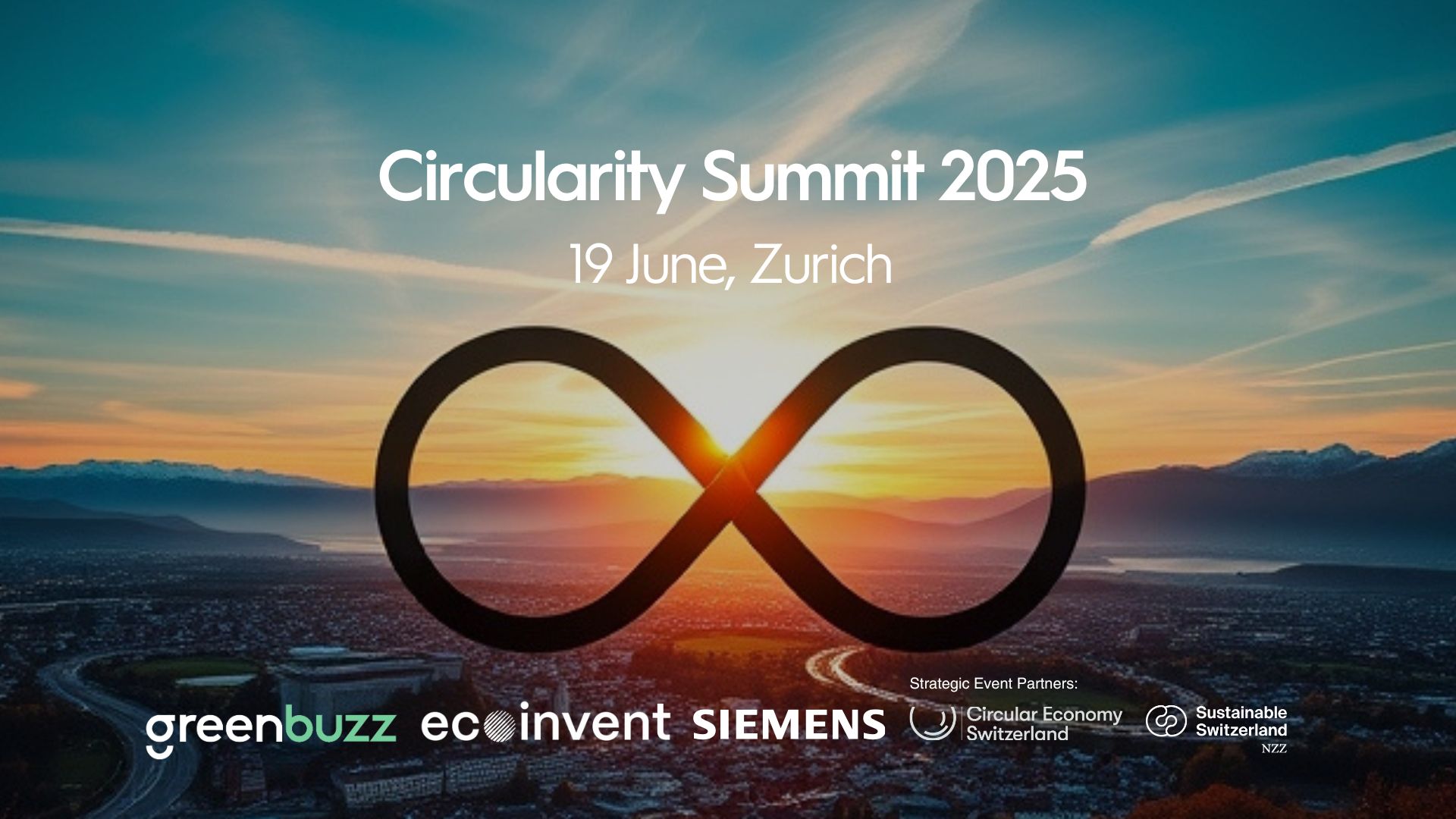
- This event has passed.
Circularity Summit 2025

The Circular Economy is more than a response to environmental challenges—it’s a transformative vision for the future of business and society. By embracing new ways of designing business and society, circularity addresses critical issues like material scarcity, and resource depletion to avoid waste to landfill, maximize use, and create products that last long and can be used several times.
Switzerland (and Zurich) is positioning itself at the forefront of the circular transition. However, challenges such as supply chain vulnerabilities, evolving regulations, and shifting societal expectations require collective action. The Circularity Summit 2025 in Zurich brought together thought leaders, pioneering businesses, and policymakers to explore how circular strategies can strengthen industries, enhance resource efficiency, and build a more sustainable future.
We examined the topic from three key perspectives: products, business models, and consumers:
- How can companies redesign their business models to reduce waste and optimise resource use while remaining competitive?
- How can product and service design prioritise durability, repairability, and recyclability?
- What policies or incentives effectively accelerate the adoption of circular economy principles?
- Which industries stand to benefit most from circular practices, and what challenges are unique to their sectors?
- How can businesses and policymakers support consumers in adopting circular behaviors?
- What tools and metrics are needed to measure and communicate circularity’s impact?
Breakout Sessions:
Circular Products
How are you designing products that extend life cycles, minimise waste, and keep materials in continuous use? This session explored strategies for durability, modularity, and recyclability, along with innovative end-of-life solutions that close material loops.
Circular Business
Rethinking business models is essential to shifting from a linear to a circular economy, but what strategies enable this transition? This discussion explored service-based approaches, digital tools, and reverse logistics that help businesses enhance resource efficiency, unlock new value, and build long-term resilience.
Consumer Circularity
Consumers play a crucial role in making circular systems work, but how can businesses encourage and support more sustainable behaviours? This discussion explored how companies can design products, software, and solutions that actively enable their customers to participate in circularity.
Focus of Panel Discussion:
Creating a truly circular economy requires collaboration across industries, from product design to business operations and consumer engagement. This panel brought together experts to discuss practical strategies, challenges, and opportunities for embedding circularity at every stage of the value chain, ensuring materials remain in use and waste is minimized.
